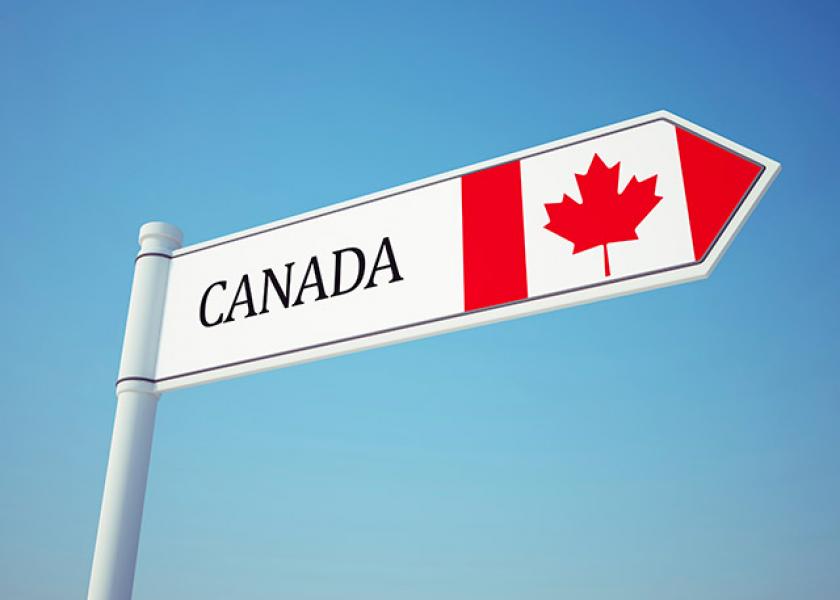10 Things Canada Wants from NAFTA Modernization

Discussions to renegotiate the North American Free Trade Agreement (NAFTA) have been underway for a few months. Shaun Haney, founder of RealAgriculture.com made his way to Las Vegas to help producers attending the MILK Business Conference understand NAFTA from Canada’s perspective.
“I think from a Canadian perspective a lot of producers in Canada are really discouraged after round four just went, to be honest, nowhere near what we want it to be,” he says. “We want a speedy conclusion to these talks so we can go on doing trade and business together.”
The next round of talks are set to begin November 15. Agriculture interests from all three countries are hopeful an agreement can be reached.
“When we look at beef and pork, Canada and the U.S. are all completely on the same page,” Haney says. “They're working together to lobby government on both sides of the border.”
Dairy is another story. Most producers are aware that Canada wants to protect its supply management system, but did you know that is just one of a list of 10 issues Canada hopes to address in a renegotiated agreement? Our northern neighbors hope to take on several cultural issues in addition to trade issues as NAFTA becomes modernized.
- Labor standards. According to Haney, Canadians are not thrilled with the conditions many workers experience in Mexico. They’d like to see that improved.
- Environmental standards. Global warming anybody? Canada wants the three countries to include language in NAFTA 2.0 related to protecting our environment.
- Gender rights.
- Indigenous rights. Haney says for the most part, this is related to Native Americans.
- Reforms to investor-state dispute settlement process. Canada’s Foreign Affairs Minister Chrystia Freeland wants "governments to have an unassailable right to regulate in the public interest."
- Expanded procurement. Canada wants to end “Buy American” which limit where contractors can source materials for state construction projects.
- Freer movement of professionals. This would expand the professions which qualify for the TN Visa.
- Expand and protect cultural exemptions. Canada demanded these exemptions for industries like publishing in the original NAFTA agreement.
- Maintain a process to regulate anti-dumping. This is related to Chapter 19 and the current debate and discussion around softwood timber, Florida citrus and the World Trade Organization.
- Protect supply management. The Achilles heel of the trade negotiations and the point that is arguably getting the most media coverage.
So how does Canada plan to address the issues and have solutions included in the agreement? Haney says it’s quite simple: they’re making friends. Canada’s strategy to get what they want from this renegotiation is to make friends in Congress, make friends at the state level and make friends in the corporate suite. According to Haney, several hundred Canadian delegations have come to the U.S. to either meet with Congress, trade groups or companies they do business with.
“Outside that bubble of dairy, man we got a lot in common and we really agree on pretty much everything,” Haney explains, “Reducing regulation and really thinning that border so it's easier to do business with each other.”







